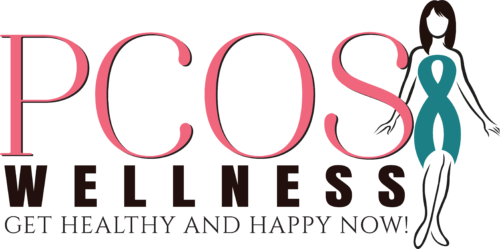
PCOS Diagnosis and Management: How To Cope
Although Polycystic Ovary Syndrome (PCOS) affects nearly 22% of women, it is often not accurately diagnosed until failure to get pregnant sends you in search of a reproductive endocrinologist, who has specialized training in PCOS diagnosis and management.
Sometimes a PCOS diagnosis is gratifying to know because there’s an explanation for what’s been bothering you for years. Other times, it can feel overwhelming to have a lot of treatment recommendations thrown at you all at once – prescriptions, tests, and recommendations to change your lifestyle.
I was diagnosed with PCOS in my early twenties, and, as both a patient and a professional, I have learned that there are many things you can do to cope with a diagnosis of PCOS. Take control of your health and mood now by following these steps.
PCOS Wellness: How-To Cope
Get educated: Do some research on the internet, ask your doctor a lot of questions, join a support group and use it, read the RESOLVE: The National Infertility Organization newsletter, and run Google searches to stay on top of developments in treatment. Even better, attend the next PCOS Challenge Symposium.
Obtain skilled medical help: Although an internist or general practitioner may diagnose PCOS, it is more likely that a gynecologist, endocrinologist, or reproductive endocrinologist will do so. If you have PCOS, you want to have an endocrinologist who will prescribe appropriate medications, monitor you for the potential development of Type II diabetes, and coordinate with your reproductive endocrinologist if you are trying to get pregnant. Your physician may also:
- help you lose weight with the assistance of certain medications, and/or referral to a skilled dietician, who can teach you how to eat in a way that contributes to balancing your hormones and managing your symptoms;
- refer you to a good dermatologist, who can help to control or eliminate skin conditions related to PCOS, such as skin darkening and acne, and even help with treatments for hair loss;
- suggest a therapist or support group to help you cope with the stress of infertility, symptoms of depression, and frustration of dealing with a chronic disease.
Exercise: Yoga will resynchronize your brain, produce deep relaxation, reduce stress, and enhance your acceptance of your body, just as it is in the moment. The cross-lateral motion of walking is also highly effective in regulating PCOS-related insulin resistance, controlling weight – and, surprise! – resynchronizing your brain waves. A little bit of exercise is better than no exercise at all, so if you all you can do is 10 minutes, that’s an excellent start.
Look better so you feel better: In addition to seeking the help of a dermatologist for skin and hair conditions, you might want to actively manage excess hair growth cosmetically. There are many ways to do this, but electrolysis is the only method that has been proven permanent. A licensed electrologist will have a great deal of experience with PCOS patients (and may even be a PCOS patient herself). Your dermatologist can provide you with a reliable referral in your area. Laser hair removal is also effective for dark hair on light skin.
Don’t forget your brain: Education is only one element of what your mind needs to effectively cope with the stress of PCOS. Sometimes friends, partners, and physicians aren’t quite enough to help you work through your anger, frustration, irritability, and sadness about having PCOS, not being able to get pregnant, or the difficulty you experience losing weight in spite of eating well and exercising regularly. A health psychologist or other licensed counselor or therapist can help you decrease stress, develop personalized coping methods, and identify additional resources. A therapist who is skilled in teaching meditation for stress reduction may be especially helpful.
By actively taking care of your physical and mental health and appearance, you can learn to feel better by knowing that you are doing the best you can with a challenging condition. Medical technology for assisted reproduction is continually improving as well. Dealing with PCOS is tough, but you are tougher! For emotional support with daily interaction from me, the PCOS psychologist, join my private Facebook group, PCOS Psychology.
Session expired
Please log in again. The login page will open in a new tab. After logging in you can close it and return to this page.
